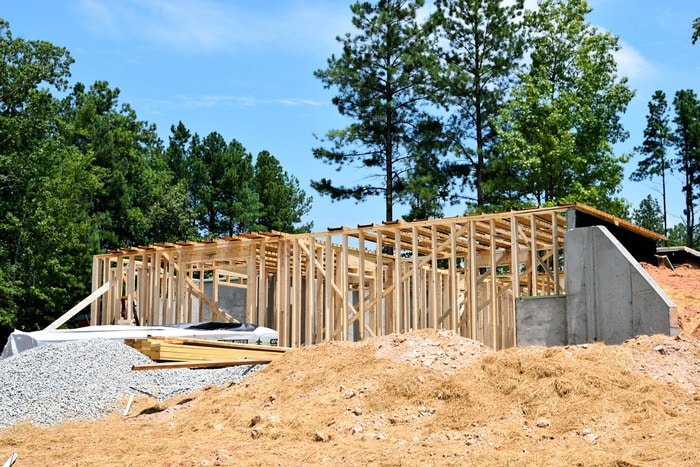
Property Developer Job Description, Key Duties and Responsibilities
This post provides exhaustive information on the job description of a property developer, to help you understand what they do.
It highlights the key duties, tasks, and responsibilities that commonly make up the property developer work description in most companies.
It also presents the major requirements you may be expected to meet to be hired for the property developer role.
Please, read on to increase your knowledge of the property developer career:
What Does a Property Developer Do?
A property developer has the responsibility of visualizing, organizing, and carrying out construction or renovation projects for commercial or private use.
His/her job description entails negotiating with property owners, real estate agents, investors, lending institutions such as banks and insurance companies, architects, lawyers, general contractors, government officials, and other interested parties.
The property developer is responsible for finding the best locations, sourcing funds, obtaining planning permission, building on raw land, organizing renovations or repairs, or leasing property, all with the end goal of making a profit on a particular project.
Property developers purchase large tracts of land on which they build residential communities, industrial complexes, and shopping malls, or other commercial structures.
They recognize the potential of a particular property, choose the site for a prospective development, and pay for the land for ownership.
Property developers join forces with architects to design the proposed development.
They also hire a contractor to build the development, after which the house is put up for sale or lease.
Property developers work hard in order to understand international trends, deliver quality real estate products and analyze customers’ expectations.
They form a significant aspect of the real estate sector as they fulfill the critical need for infrastructure in areas like housing, office space, retail, entertainment, etc.
Property developers engage in business of developing real estate for sale by erecting buildings and other structures along with the sub-division of lands into plots.
Some of the requirements that employers would want you to possess if you are seeking to work as a property developer include excellent people skills, communication and interpersonal skills; strong leadership skills, risk tolerance, creativity, and problem-solving skills.
You will also be expected to possess profound ability to take hard decisions and spot potential; possess financial skills to manage development finances, and technical skills to help during the property development process.
Property Developer Educational Qualifications
You will be required to show proof of academic qualifications on your search for a property developer position.
Building a strong portfolio with demonstrated skills and abilities for the new property developer job will offer you the opportunity for an interview.
A High School Diploma is the minimum educational level for this career path, although there are no prerequisite qualifications needed to become a property developer.
However, there is now a variety of qualifications available to prospective developers through the following certificate programs: University courses including M.Sc. in property development, National Federation of Property Professionals (NFOPP), Awarding Body for the Built Environment (ABBE), and EDEXCEL.
Furthermore, the property developer needs to have sufficient capital to make an initial purchase.
Property Developer Salary
Property developers in the United States make an average salary of $64,561 per year or $31 per hour.
Property Developer Job Description Example/Sample/Template
The duties, tasks, and responsibilities typically performed by property developers are shown in the job description example below:
- Identifying an attractive development opportunity
- Responding to Requests for Proposals (“RFPs”) for redevelopment projects
- Working with lawyers, agents, and other professionals to draft contracts
- Assembling development teams, including architects, engineers, marketers, agents, builders, etc.
- Project managing the development and overseeing any construction work to make sure it is delivered to deadline
- Negotiating and obtaining planning permission and licenses and keeping abreast of general industry developments and building regulations
- Ensuring that health and safety requirements are satisfied
- Negotiating prices for the purchase and sale of land and establishing base prices for publicly owned land
- Assisting in the marketing of the development and obtaining financing
- Managing the property, including organizing day-to-day repairs or security, as well as negotiating leases and contracts or hiring individuals
- Interacting with contractors, realtors, engineers, designers, municipal government officials, architects, zoning inspectors, lawyers, and other professionals
- Recognizing the development potential of a specific tract of land
- Selecting site for commercial, residential, and industrial development
- Securing adequate funding to develop tract of land
- Discussing with architects, engineers, and designers to establish the design and development plans
- Discussing with zoning officials, and realtors to ensure the land is zoned properly
- Employing contractors to carry out the development
- Negotiating terms and costs with contractors
- Employing real estate agents to manage the sale of the developed land.
Property Developer Job Description for Resume
If you are writing a resume or CV and have worked before as a property developer or are presently working in that position, you can create a compelling professional experience section by applying the property developer job description sample provided above.
With a well-written professional or work experience section, you can show in your resume that you have been successful performing the duties and responsibilities of a property developer.
This information in your resume can help you get an interview appointment with the recruiter/employer especially if the new position that you are applying for requires some work experience as a property developer.
Property Developer Requirements – Skills, Knowledge, and Abilities for Career Success
If you are seeking the property developer job, here are major requirements most recruiters/employers may want you to meet to be hired:
- A thorough understanding of how to manage money
- An ability to effectively prepare cost estimates, budgets, and work timetables
- An ability to interpret and explain contracts and technical information to other professionals
- An ability to effectively collaborate with architects, engineers, and other specialists
- An ability to select, schedule, and coordinate subcontractor activities
- An ability to effectively respond to work delays, emergencies, and other problems
- Familiarity with legal requirements, building and safety codes, and other regulations
- An ability to select the most appropriate property for development based on project requirements
- Flexibility and the ability to work on a range of different projects
- An ability to work and function in high-pressure environments
- An understanding and a solid grasp of numbers and financial information
- Technical knowledge to be able to complete applications for planning permissions and obtain relevant licenses
- Excellent communication and managerial skills
- Excellent project management skills including an ability to evaluate a variety of factors
- A keen knowledge of costs and the ability to monitor and control expense
- A willingness to work long hours, both in the office and on-site
- Teamwork and management skills
- Adaptability, entrepreneurial flair, marketing, and sales skills
- Team managing ability and planning regulation and process knowledge.
Conclusion
This post is helpful to individuals interested in the property developer career; they will be able to learn all they need to know about the duties and responsibilities performed by the role.
With this knowledge, they will be able to decide if property development is the right career to pursue.
It is also valuable to recruiters/employers who are looking to find and hire the best candidate for the vacant property developer position in their companies.
They can utilize the property developer job description example provided on this page in creating a detailed one for use in recruiting for the position.












